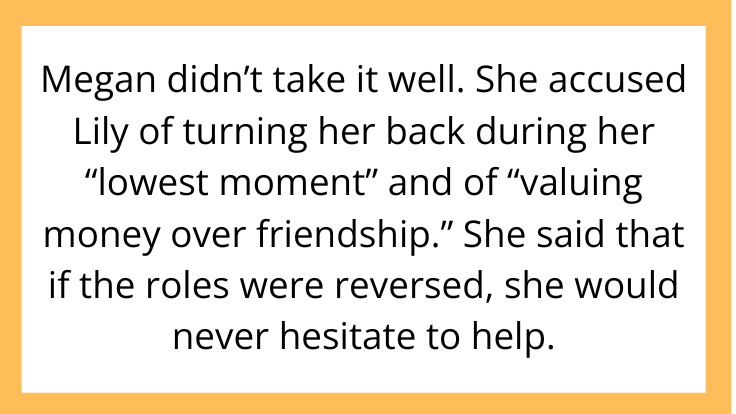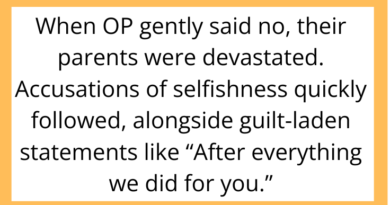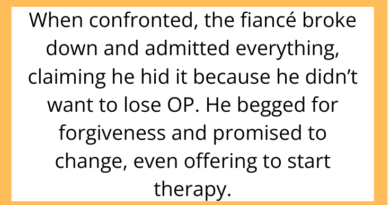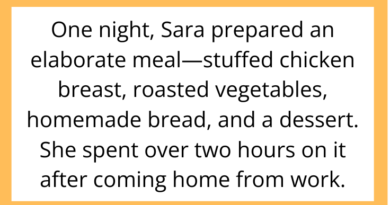AITAH for Not Wanting to Help My Best Friend Financially After Her Divorce?
Friendship is supposed to be about loyalty and support, but what happens when that support comes with a price tag you’re not willing—or able—to pay? Today’s AITAH scenario dives into a sensitive topic that many people face: financial boundaries with close friends.
Let’s unpack this story and see whether saying “no” makes someone heartless—or simply human.
The Situation: When Friendship and Money Collide

The original poster (we’ll call her Lily) shared her dilemma in r/AITAH. Lily, 31, has been best friends with Megan, 32, since college. They’ve been through everything together—graduation, first jobs, weddings, and now, unfortunately, Megan’s recent divorce.
Megan’s marriage ended suddenly when her husband admitted he’d been unfaithful for years. The split left her emotionally devastated and in a precarious financial situation. She moved into a small apartment, took over several bills, and is now trying to rebuild her life.
To help, Megan asked Lily for financial support—specifically, help covering her rent and utilities for the next three months while she got back on her feet.
The Conflict: Lily Says No

While Lily cares deeply about her friend, she felt uncomfortable with the request. She explained that she recently bought a home with her fiancé, is saving for her wedding, and doesn’t have much disposable income.
She offered emotional support, meals, and help with errands, but she drew the line at giving money.
Megan didn’t take it well. She accused Lily of turning her back during her “lowest moment” and of “valuing money over friendship.” She said that if the roles were reversed, she would never hesitate to help.
After days of guilt and second-guessing, Lily took to Reddit to ask:
AITAH for not wanting to help my best friend financially after her divorce?
Reddit Reacts: Mixed Opinions and Hard Truths
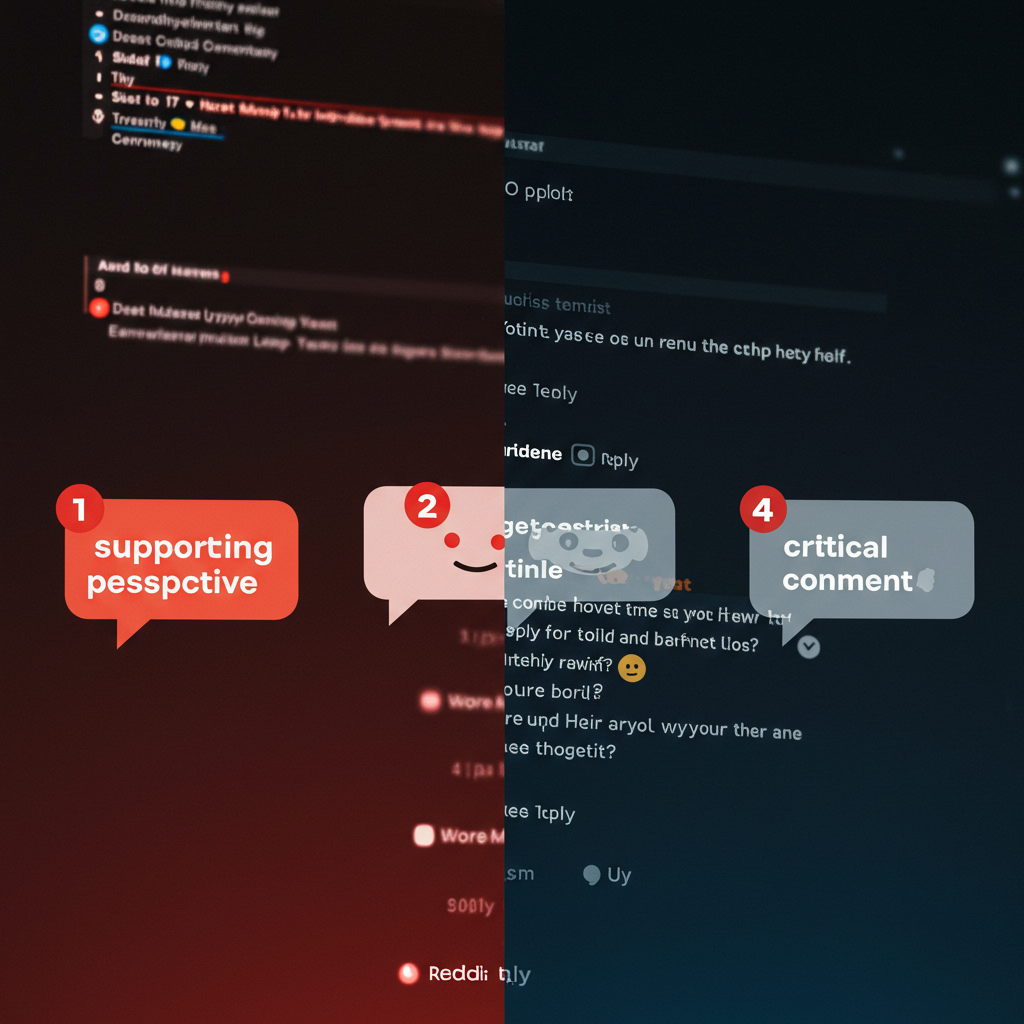
The r/AITAH community didn’t hold back, offering hundreds of comments. The verdict was nuanced, and the opinions fell into three main camps:
1. Not the Villain: Boundaries Matter
Many people strongly defended Lily’s right to say no:
-
“It’s not your job to subsidize her life, even if you love her.”
-
“Offering emotional support is enough.”
-
“You have your own goals and financial responsibilities.”
These commenters emphasized that a friend’s crisis doesn’t automatically entitle them to someone else’s money. Helping out is kind, but not an obligation.
2. A Little Heartless? Maybe, But Not Evil
Some acknowledged that Lily’s refusal could feel cold, given the closeness of their friendship:
-
“It’s understandable you’re uncomfortable, but if she’s truly about to lose her apartment, could you consider a small loan instead of a gift?”
-
“Sometimes friendships are tested when one person is desperate.”
These folks weren’t necessarily saying Lily was wrong—but that her choice might damage the relationship permanently.
3. Megan’s Entitlement is the Real Problem
A significant number of comments pointed out that Megan crossed a line by guilting Lily:
-
“She’s an adult. Divorce sucks, but it doesn’t mean you get to demand financial rescue from your friends.”
-
“Her reaction shows she might have expected you to be her safety net.”
These users felt that Megan’s anger revealed a sense of entitlement, rather than a reasonable request for help.
Financial Boundaries Are Still Boundaries

This scenario highlights something a lot of us struggle with: the difference between support and sponsorship.
It’s natural to want to help a friend who’s hurting. But if you’re not in a position to help financially—or simply don’t want to—that’s valid.
Lily’s offer of emotional support, meals, and practical help was generous. She didn’t abandon Megan—she just declined to take on her bills.
The Emotional Fallout: Can Their Friendship Survive?

One of the hardest parts of this story is the fear that their friendship won’t recover.
Megan felt betrayed, and Lily feels guilty, even though she stood by her principles. This is often where resentment begins in relationships—when one person feels they gave everything and the other feels judged for setting limits.
Whether or not they reconcile will depend on both women’s willingness to have a difficult, honest conversation about expectations.
What Could Lily Have Done Differently?

Reddit users offered a few suggestions that might have softened the impact:
-
Offer a Loan Instead of a Gift: Some friends are more comfortable providing a short-term loan with clear repayment terms.
-
Pool Resources: Help organize a fundraiser among other friends or family rather than carrying the burden alone.
-
Practical Help: Offer to help Megan find financial assistance programs or temporary housing options.
But ultimately, Lily wasn’t obligated to do any of these things—and that doesn’t make her a villain.
The Takeaway: Your Wallet Isn’t Proof of Friendship

This AITAH story underscores an uncomfortable truth: you can love someone without taking on their financial burden.
Being a good friend doesn’t always mean writing a check. Sometimes, it means offering emotional support while still protecting your own stability. And that’s okay.
If Megan can’t understand that, it may be time for both women to reevaluate their expectations.
